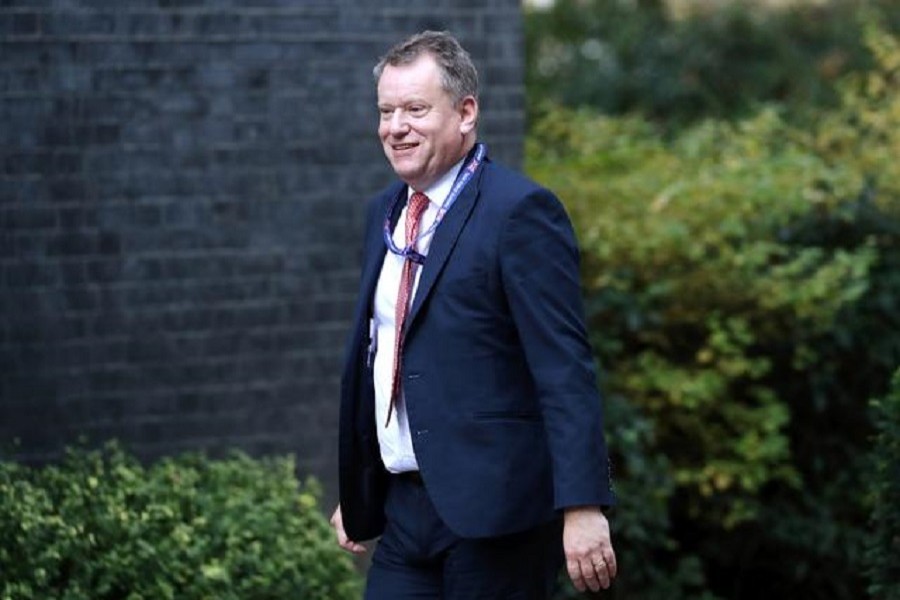Britain sees no basis to resume trade talks with the European Union unless there is a fundamental change in approach from Brussels, chief negotiator David Frost said on Monday, dashing earlier optimism that negotiations could resume.
Earlier, Michael Gove, the minister overseeing Brexit, had said there was agreement on the need to intensify trade talks and work on legal texts, after the negotiations broke down last week.
The two sides are each pressing the other to move first in the high-stakes talks on a deal to protect billions of pounds worth of trade once Britain ends a status quo arrangement with the EU on Jan 1.
A no-deal finale to Britain’s five-year Brexit drama would disrupt the operations of manufacturers, retailers, farmers and nearly every other sector - just as the economic hit from the coronavirus pandemic worsens.
Frost said on Twitter he had held a constructive discussion with EU counterpart Michel Barnier, but added: “The EU still needs to make a fundamental change in approach to the talks and make clear it has done so. We will stay in close touch.”
Earlier, Barnier tweeted that the EU remained available “to intensify talks in London this week, on all subjects, and based on legal texts”.
Gove welcomed Barnier’s message: “There has been a constructive move on the part of the European Union and... I prefer to look forward in optimism rather than necessarily to look back in anger.”
Gove’s words raised expectations that trade talks might resume, but a spokesman for Prime Minister Boris Johnson made clear that was not an immediate prospect.
The spokesman called for “an EU approach consistent with trying to find an agreement between sovereign equals and with acceptance that movement needs to come from the EU side as well as the UK”.
NO BREAKTHROUGH AS YET
Negotiations broke down on Thursday, when the EU demanded Britain give ground,
In turn, Johnson said on Friday there was no point in continuing talks, saying Britain would “prosper mightily” without a trade agreement, or as the British government describes it: an “Australian-style” deal.
That would mean the United Kingdom trading on World Trade Organization terms, probably causing significant price rises.
Such a scenario would throw $900 billion in annual bilateral trade into uncertainty and could snarl border ports, turning parts of the southeastern English county of Kent into a vast truck park.
Gove, in parliament, repeated Britain’s demands.
“We have to be in control of our own borders, our fishing grounds, we have to set our own laws. We have to be free to thrive as an independent free trading nation, embracing the freedoms that flow as a result,” he told lawmakers.
Brussels wants Britain to move on both fair competition guarantees, or the so-called level playing field, and on fisheries, which President Emmanuel Macron insists should offer more for the French side.


